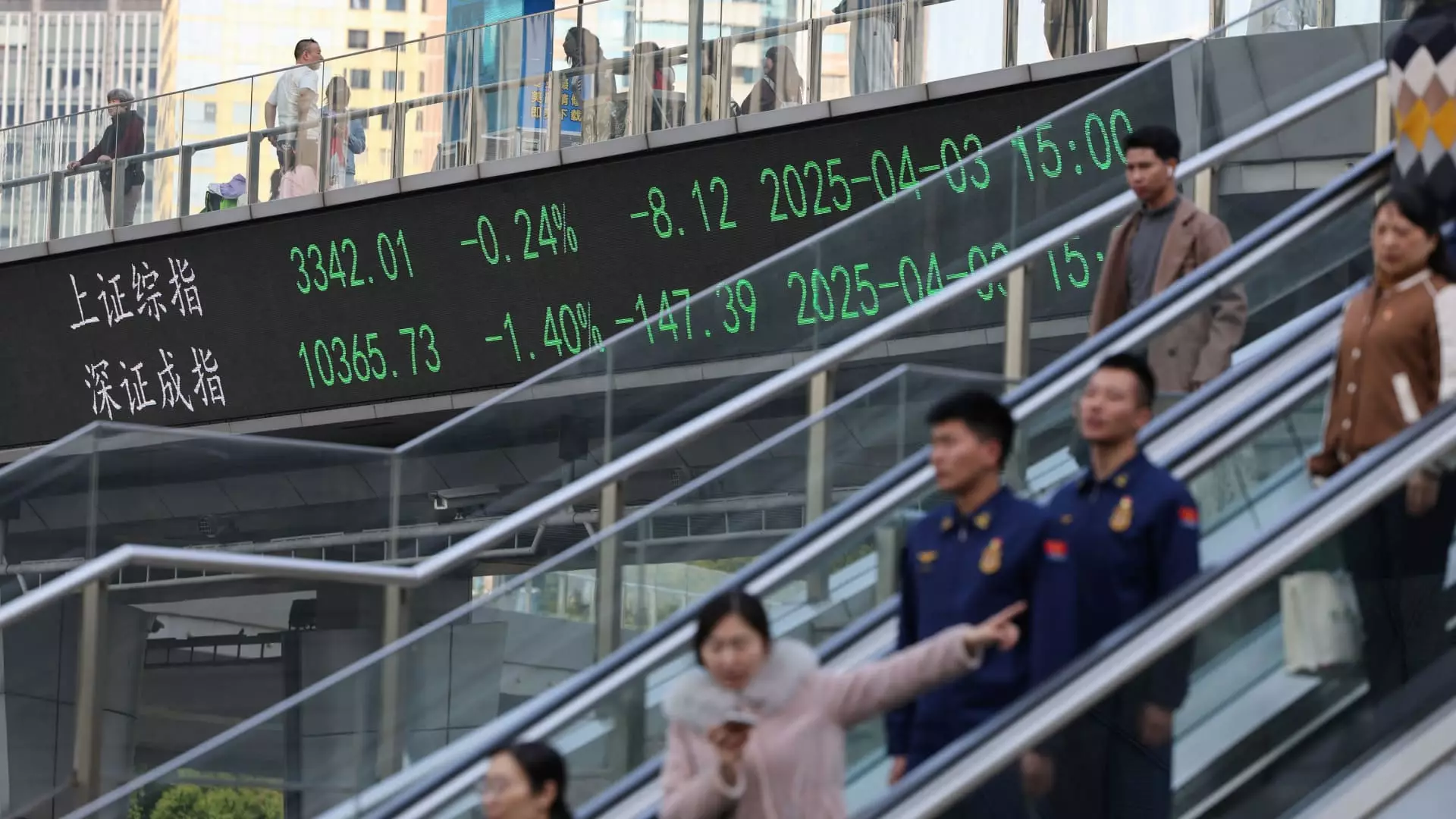The tumultuous climate surrounding tariffs may leave many global investors uneasy, particularly concerning the interplay between the U.S. and China. Nevertheless, the consensus among analysts suggests a surprisingly robust future for China’s technology sector, driven by the momentum of domestic innovations, particularly in generative artificial intelligence. While the latest wave of U.S. tariffs sent shockwaves through markets, causing initial drops in Chinese stocks, there are indications that these stocks are rebounding and could benefit from substantial long-term growth.
The initial reaction of the markets, while understandably worrisome, may be more of an overreaction than a reflection of the actual state of the Chinese tech landscape. With many larger tech firms demonstrating minimal exposure to the U.S. market, there is reason to be optimistic. The smart money, therefore, would advocate for a reassessment of these market dynamics, especially given that local consumer sentiment and internal market activities remain strong.
Policymakers’ Strategic Moves
Chinese policymakers understand the stakes and may be preparing to intervene fiscally should conditions weaken further. Recent indications from the nation’s finance ministry signal a readiness to stimulate growth by deploying ‘dry powder’—essentially undisclosed resources intended to counteract macroeconomic uncertainty. Such proactive measures could provide a safety net that bolsters investor confidence and affirms the intrinsic value of Chinese companies.
Moreover, fiscal strategy meetings planned for later this month suggest that a more diligent approach to economic health is imminent. The strategic positioning of fiscal policies should not be taken lightly; these decisions can create an environment conducive to innovation and growth, especially in technology sectors. Staying ahead of the curve in policymaking will be crucial as tariffs loom and trade relations fluctuate.
Value Proposition in the Tech Sector
The valuation of Chinese tech stocks remains significantly attractive compared to their U.S. counterparts. According to reports, the average price-to-earnings ratio for several leading Chinese tech companies is astonishingly below that of the so-called “Magnificent Seven” in the U.S. This disparity suggests that investors might be underpricing the growth potential inherent within China’s tech landscape. As such, shifting focus to domestic plays can offer a strategic hedge against the uncertainties created by escalating tariffs.
Citi’s preference for domestic over export-centric companies is a salient observation in an increasingly unpredictable global trading environment. This tactical pivot indicates a recognition of the importance of domestic consumption and a burgeoning appetite for tech innovation within China’s own borders. As the nation pivots towards homegrown solutions, the tech sector will likely see accelerated growth that could outpace previous projections.
Rising Global Interest and Investment
The increasing interest from a considerable portion of international investors is another sign that strength can be found in seemingly adverse conditions. Recent reports reveal that nearly one-quarter of global equity investors are becoming more optimistic about Chinese tech stocks. This growing confidence can potentially reshape market dynamics, leading to increased capital inflows into the sector.
Such enthusiasm is likely buoyed by innovations from Chinese companies keen on making significant advancements despite rigid U.S. restrictions. For instance, DeepSeek’s claims of releasing an AI model that surpasses offerings like OpenAI’s ChatGPT serves to demonstrate that innovation is rife within China, notwithstanding external pressures. As these homegrown advancements unfold, the scope for cost reduction and efficiency boosts becomes even more evident, compelling policymakers to support an environment ripe for consumer growth.
Sector Stability Amid Tariff Concerns
Interestingly, another layer of resilience is seen in sectors like healthcare, which remain relatively insulated from tariff repercussions. Investment analysts highlight that pharmaceutical companies may continue to thrive, as they were exempted from recent tariff implementations. Such insulation serves as a reminder that opportunities do exist even in turbulent waters, enabling strategic positioning for investors looking to diversify their portfolios.
Furthermore, companies with established partnerships in the U.S. can leverage these ties to navigate potential challenges posed by tariffs. By maintaining a balance between partnerships and innovation, firms can explore new markets even in the face of adversity, underscoring the necessity for flexibility in global business strategies.
China’s ability to adapt and innovate should not be underestimated. The interplay of domestic growth, fiscal intervention, and resilient sectors can create a multi-faceted growth story that defies simplistic market narratives. Investors would do well to stay attuned to the ground realities of this evolving landscape. In so doing, they could uncover substantial opportunities even as headlines dictate stark narratives about tariffs and trade conflicts.


Leave a Reply